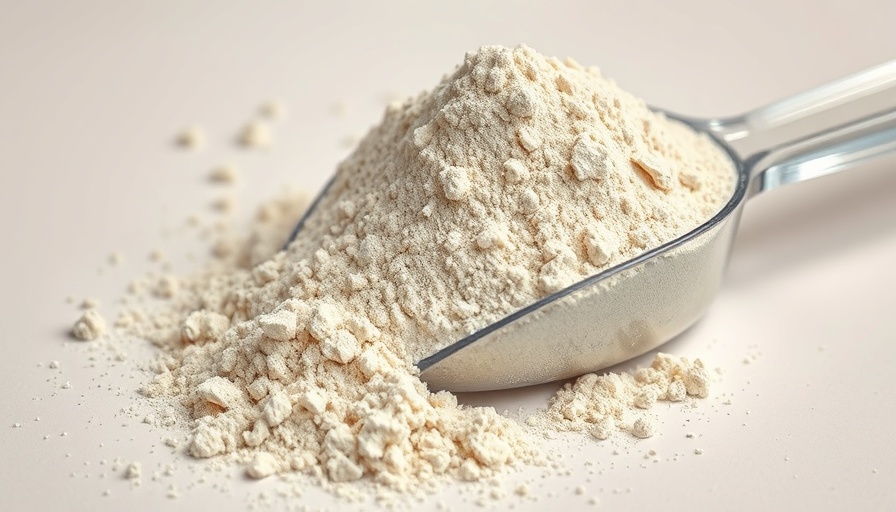
Lead in Protein Powders: What You Need to Know
Protein powders have quickly become a staple in many routines, especially for those seeking health and fitness solutions. However, a new study raises serious concerns regarding their safety. A recent report by Consumer Reports has revealed alarming lead contamination levels in numerous protein powders on the market, igniting a wave of anxiety among users.
What's the Study Saying?
The study tested 23 popular protein supplements and uncovered that approximately 70% contained lead levels exceeding the threshold deemed safe. Particularly concerning were plant-based protein powders, which held lead levels up to nine times higher than those derived from dairy sources. For instance, Naked Nutrition’s Mass Gainer was flagged for having an astonishing 1,570% of the safe lead limit in a single serving.
The Health Implications of Lead Exposure
Lead is a well-known neurotoxin. In children, exposure can lead to severe developmental issues, while in adults, it can result in high blood pressure, kidney damage, and other health challenges. Dr. Kelly Johnson-Arbor, a toxicologist, asserts that while the findings warrant concern, they do not indicate immediate harm for healthy adults consuming these products moderately. Food safety experts emphasize that the FDA doesn’t have strict regulations pertaining to lead in supplements, often leaving consumers to navigate these risks without adequate guidance.
Why Are Plant-Based Powders More Contaminated?
The heightened levels of lead in plant-based powders might be attributed to the soil in which the crops are grown. Moreover, lead can accumulate during processing, adding to the contamination risk. The extraction and manufacturing processes, particularly for pea protein—commonly found in plant-based powders—raise additional concerns about potential lead exposure during these stages.
Consumer Reports: Key Recommendations
In light of these findings, experts recommend consumers limit their use of protein powders, particularly those with high lead levels. Options such as the Garden of Life’s Sport Protein should be consumed sparingly, ideally no more than once a week. Additionally, consumers are urged to prioritize whole food sources of protein over supplements, making use of natural food options such as beans, lentils, and dairy products for protein intake.
Staying Informed: What You Can Do
Regularly consuming protein supplements isn’t necessary for most people, meaning the potential risks might outweigh any perceived benefits. Always scrutinize labels and demand transparency regarding heavy metal testing from manufacturers. Opting for dairy-based protein powders or whole foods can significantly reduce any unnecessary exposure to lead and other harmful contaminants.
Future Actions for Producers and Regulators
Health stakeholders, including the FDA, must enhance oversight and establish clear regulations surrounding the acceptable levels of heavy metals in dietary supplements. Currently, there is a glaring lack of enforceable standards and regular testing, which can allow unsafe products to flourish in the marketplace. As the consumer base for these supplements grows, the responsibility shifts to both producers and regulatory bodies to ensure public safety.
In conclusion, while protein powders can play a role in your diet, due diligence is necessary when selecting these products. Stay informed, question what you consume, and consider whole foods as the best and safest source of nutrition.
 Add Row
Add Row  Add
Add 




Write A Comment